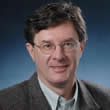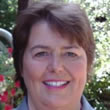 Albin Gasiewski, University of Colorado, Boulder, CO, USA
Albin Gasiewski, University of Colorado, Boulder, CO, USAAlbin J. Gasiewski (StM`81, M`88, SM`95, F`02) is Professor of Electrical and Computer Engineering at the University of Colorado at Boulder and Director of the CU Center for Environmental Technology. He received the Ph.D. degree in electrical engineering and computer science from the Massachusetts Institute of Technology in 1989. Previously, he received the M.S. and B.S. degrees in electrical engineering and the B.S. degree in mathematics from Case Western Reserve University in 1983. From 1997 through 2005 he was with the U.S. National Oceanic and Atmospheric Administration’s (NOAA) Environmental Technology Laboratory in Boulder, Colorado, USA, where he was Chief of ETL’s Microwave Systems Development Division. From 1989 to 1997 he was a faculty member at the Georgia Institute of Technology. He has developed and taught courses on electromagnetics, remote sensing, instrumentation, and wave propagation theory.
Prof. Gasiewski is a Fellow of the IEEE, Past President (2004-2005) of the IEEE Geoscience and Remote Sensing Society, and founding member of the IEEE Committee on Earth Observation (ICEO). He is a member of the American Meteorological Society, the American Geophysical Union, the International Union of Radio Scientists (URSI), Tau Beta Pi, and Sigma Xi. From 2009-2011 he served as Chair of USNC/URSI Commission F. He served on the U.S. National Research Council’s Committee on Radio Frequencies (CORF) from 1989-1995. He was the General Co-chair of IGARSS 2006, in Denver, Colorado, and a recipient of the 2006 Outstanding Service Award and the 2017 Education Award from the GRSS.

 Mendi Mullett, Analytics Informatics Institute, Northglenn, CO, USA
Mendi Mullett, Analytics Informatics Institute, Northglenn, CO, USA Albin Gasiewski, University of Colorado, Boulder, CO, USA
Albin Gasiewski, University of Colorado, Boulder, CO, USA
Thank you for sharing such a fascinating topic. It would be great if this became a worldwide initiative that are made up of partnerships among educational institutions.